Musicians Ankur Tewari and Mame Khan settle down for a comfortable chat about subjects that range from why music is boxed
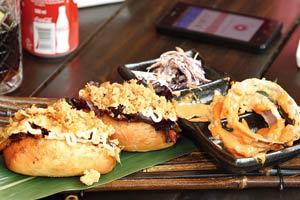
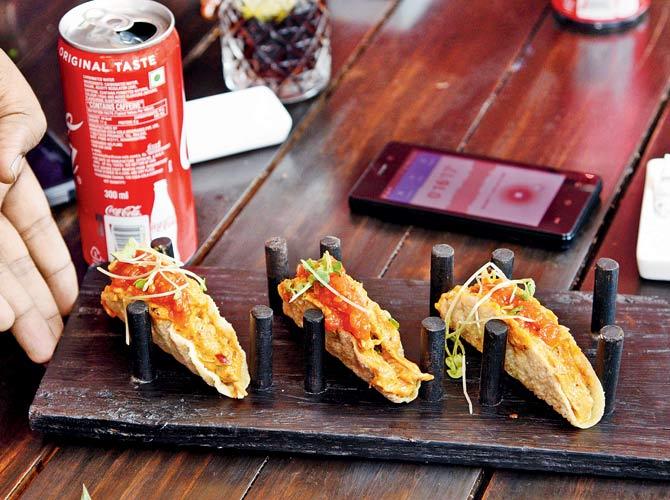
ADVERTISEMENT
When he walks into a BKC restaurant with a trolley bag, dressed in jeans, a purple shirt, a thin silver chain around his neck and black sunglasses, Mame Khan looks more like the archetypal rock star than what he actually is - a supremely gifted folk singer who is putting the Manganiyar tradition of music on the global map. He's arrived straight from Pune after a concert there, which explains the trolley bag.
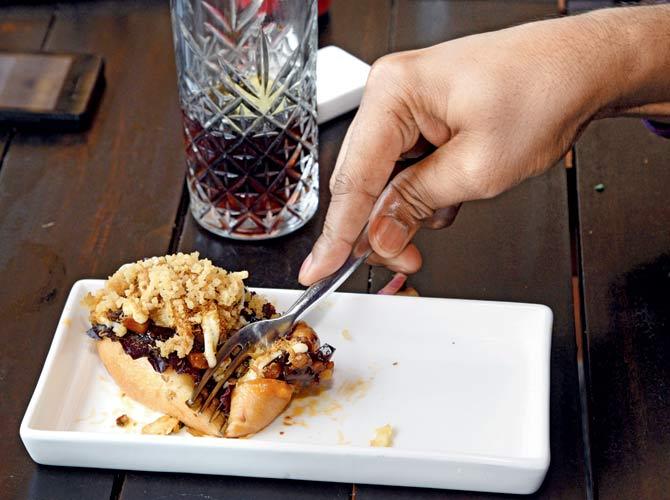
And he's famished, he tells us, proceeding to peruse the menu without any delay as we wait for Ankur Tewari to arrive. Tewari is one of those rare artistes who straddle the worlds of indie music and Bollywood films with equal élan. He reaches about 10 minutes after Khan, and the two of them - having met and worked together before - settle down for a comfortable chat about subjects that range from why music is boxed into different genres to the cuisine of Rajasthan. Excerpts:
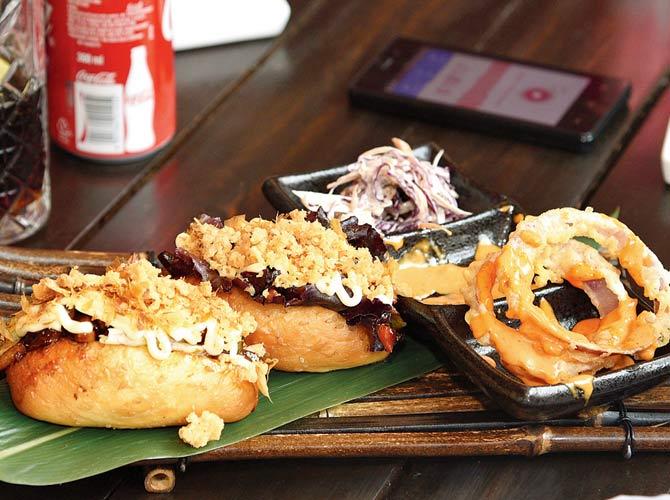
Shunashir (to Mame): We had been talking about laal maas before Ankur arrived. Can you tell me how exactly is it different from jungli maas?
Mame: One difference is a sense of adventure. (To Ankur) But why don't you go first if you have something to say?
Ankur: My wife is Rajasthani, and what her family has told me is that when people would go hunting and set up camp in the forest, that's when they would make jungli maas. So the recipe has very limited ingredients. It's not like you have the luxury of a kitchen outdoors. So you take just two or three things and cook them over a long period of time.
Mame: Yes. What happens is that when you are outdoors, you are short on supplies. And people will tell you things like, "We have very little water. So don't drop any of it." So you end up using only a few things and improvising with utensils. For example, you carry whole red chillies and garlic, and you find a flat stone on which to grind it with another stone, because there is no mortar and pestle. So, that's the sense of adventure I am talking about.
Ankur: And laal maas on the other hand is made in the kitchen, meaning it involves more ingredients.
Mame: That's why it has added spices like coriander seeds, and has a richer flavour.
Ankur: Right, and all this talk is now making me crave some laal maas!
Mame: Well, come over some day and I'll make you my version of it. I am a bit of an expert.
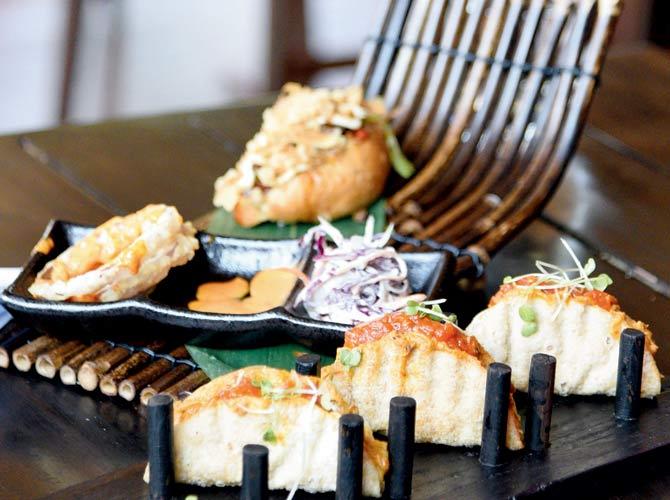
The food - two portions of chilli chicken shawarma, hoisin duck hot dog sliders and grilled chicken and avocado tacos - arrives.
Shunashir: Manganiyar singers have come into focus in a big way for some years now. What has the community's reaction been to this limelight?
Mame: Well, we obviously want to take our music to as many people as possible. So it's great if instead of the 1,500 or 15,000 people in our villages, there are now 15 lakh people listening to us. And let me also tell you a bit about our traditions. We are a community of musicians who depend on patrons for livelihood, singing for them on occasions like weddings and birthdays. And despite being Muslim, we also worship many Hindu gods. Why? Because our patrons are Hindu Rajputs. I myself have a temple at home, for instance.
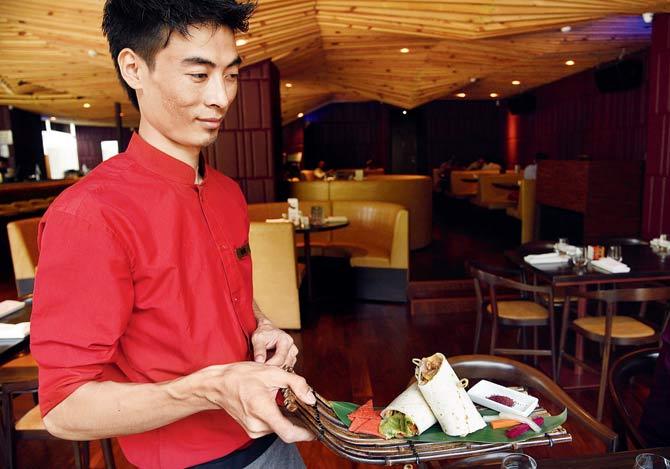
Shunashir: But does the Manganiyar community that lies on the Pakistani side of the border also worship Hindu gods?
Mame: I'm sure they do, because our traditions are the same. And if you look at a place like Umerkot, which has a strong Manganiyar presence and is across the border, it is still under the influence of Rajput Ranas.
Ankur: Also, I have been to Pakistan five times and seen many gurudwaras and temples there, having even visited one.
Mame: But I have to say this - no one celebrates Hindu festivals like Holi and Diwali the way people in and around my village do. You won't be able to make out what community a person is from, or which religion the festival is part of. And that's why Manganiyars also sing songs in praise of Krishna, Ram and Shiva, and Kabir and Tulsidas.
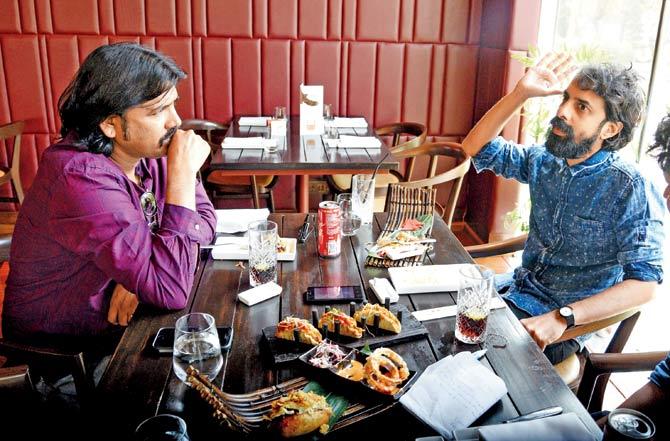
Shunashir (to Ankur): So do you too pick up influences in your music from such folk traditions?
Ankur: I pick up influences from everywhere, even from the stories that people tell me about their lives. Actually, for me, all the divisions in music and division of land are made by people who want to make money. The people who draw these lines are the same people who see only business, even if it's indie music we are talking about. See, what you have to understand is why music touches your heart. It's because there is something completely unknown to us, which we define as nature. Now, what is nature? Is it just trees, the wind, flowers and things like that? No. For me, nature is a feeling.
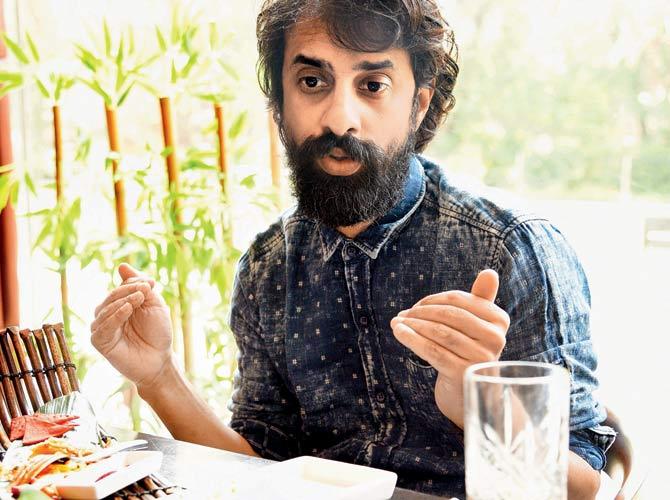
And the reason one tune sounds good is because it's close to nature, while some other tune sounds bad because it is not harmonious with nature. But if you can catch the intrinsic rhythm that nature has, any song might sound melodious to you. And this rhythm is such that it doesn't classify songs as rock or pop or whatever. It is about feeling right. Why did it feel right? That's an answer we don't have. Yet, that same rhythm also applies to other aspects of life, like colour or even food for example. Which is why you'll find that many musicians are also good cooks, though I must admit here that I am not a huge foodie myself. I am not the sort who wakes up and thinks, "Okay, this is what I feel like eating today."
Mame: Well, once you have that laal maas I make for you, you might change your mind.
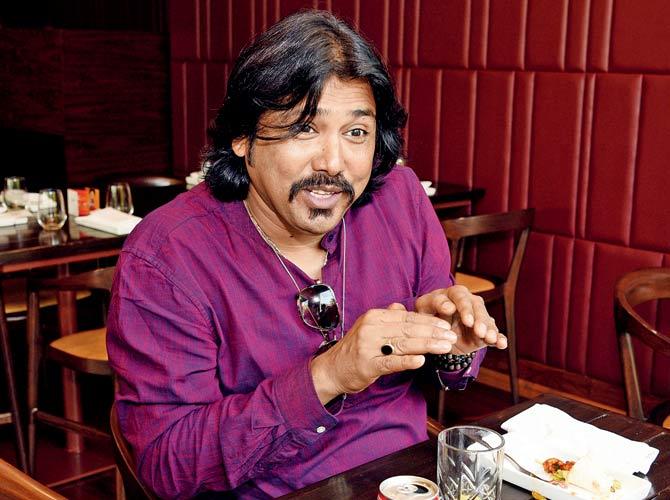
Quick takes
One international artiste you would like to collaborate with:
Mame: I have been collaborating with people from around the world for years now. But one person I would love to work with is the saxophonist George Brooks.
Ankur: Bob Dylan. But I don't know whether that is a good idea or not given his infamous [cranky] temperament. So I'll keep Sting as an option.
One food item typical to Mumbai that you like:
Mame: It would have to be vada pav, which helped me get through the phase when I had first come to the city looking for a house.
Ankur: The green chutney sandwich, because there is something comforting about it.
One meal you have had that remains imprinted in your mind:
Mame: The laal maas and kabuli pulao my father used to make, without a shadow of a doubt.
Ankur: The chana from the streets of Delhi I used to depend on during my younger days there, since it helps me stay grounded.
Catch up on all the latest Mumbai news, crime news, current affairs, and also a complete guide on Mumbai from food to things to do and events across the city here. Also download the new mid-day Android and iOS apps to get latest updates
 Subscribe today by clicking the link and stay updated with the latest news!" Click here!
Subscribe today by clicking the link and stay updated with the latest news!" Click here!






